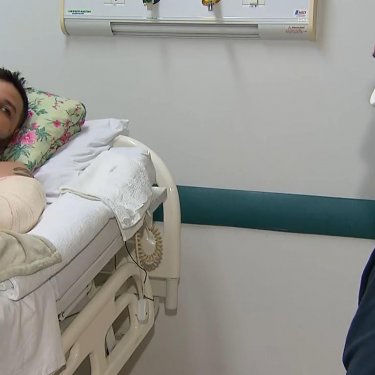Lawmaker charged with Brazilian journalist’s abduction and torture

Reporters Without Borders (RSF) hails the progress in the investigation into journalist Romano dos Anjos’s abduction and torture in October 2020 in Roraima state, in northern Brazil, which has led to the arrest of Roraima state assembly representative Jalser Renier. The judicial system must now clearly identify everyone involved in this shocking case, and issue exemplary punishments, RSF says.
Renier was formally charged on 1 October with masterminding the abduction. The police officer in charge of the investigation, João Luiz Evangelista, said he had hard evidence proving that the abduction was “carried out directly by the military police in association with the Roraima legislative assembly and under the orders of Jalser Renier, the assembly’s speaker at the time.”
At the end of September, the G1 news website reported that Renier had been interfering in the investigation and that, in November 2020, while still state assembly speaker, he threatened state governor Antônio Denarium with the aim of obstructing the police investigation. Renier has been fitted with an electronic bracelet and placed under house arrest since 5 October.
“We hail the progress in the Roraima police investigation into this shocking affair,” said Emmanuel Colombié, the head of RSF’s Latin America bureau. “Representative Jalser Renier’s active participation in Romano dos Anjos’s abduction and torture is absolutely staggering. His preventive detention must now allow an effective and completely impartial investigation, and must lead to exemplary judicial sanctions for all those responsible. The Brazilian authorities, at both local and federal level, must ensure the protection of journalists, whose reporting is more vital than ever in Brazil.”
Romano dos Anjos, a 40-year-old Imperial TV anchor, was kidnapped and tortured by three gunmen in Bom Intento, a rural area near Boa Vista, the Roraima state capital, on 26 October. After being abducted from his home, he was missing for 12 hours, until found on the outskirts of the city, covered in bruises, with his left arm broken and his right foot dislocated. His car had been torched and his wife was found tied up in their home. No suspect was arrested at the time.
Imperial TV news director Leiliane Matos said that, a few days before his abduction, Dos Anjos had used his programme Mete Bronca to denounce irregularities and corruption affecting Roraima’s management of federal funds for combatting Covid-19.
As a result of his repeated radio and TV criticism, “Romano dos Anjos had become a thorn in Jalser Renier’s side,” said the police officer João Luiz Evangelista.
Renier’s arrest was also partly the result of the so-called “Pulitzer” investigation by the Roraima police, which has shed light on the existence of a criminal organisation specialising in espionage, intelligence and private security that Renier coordinated from the state assembly and consisted of members of the military police and army.
Political tension is increasing the vulnerability of Brazil’s media. Jerry de Oliveira, presenter and coordinator of Rádio Noroeste FM, a community radio station based in Campinas, in São Paulo state, was threatened on 9 September by gunmen who told him to “stop talking badly about [President] Bolsonaro.”
De Oliveira has received more threats since them, some of them circulating online, exposing him to even more danger. Rádio Noroeste FM is known for its frequent criticism of President Bolsonaro and its defence of human rights, which has led to frequent attacks and threats on social media orchestrated by conservative political sectors in Campinas.
De Oliveira filed a complaint with the São Paulo state police internal investigations department. He also reported the threats to Brazil’s Federal Programme for the Protection of Human Rights Defenders and Journalists (PPDDH). One of the persons suspected of having intimidated him was taken to a police station to give a statement. Security cameras have also been installed in De Oliveira’s home and at the radio station.
Brazil is ranked 107th out of 180 countries in RSF's 2021 World Press Freedom Index.



